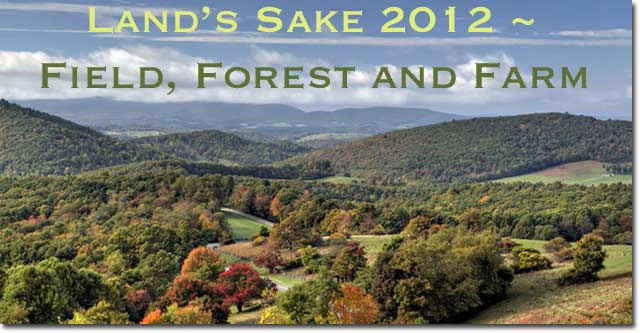You'll find this kind of wide-angle view of time in the marvelous illustration of the geological ages created by the US Geological Survey. [http://goo.gl/Vrlak] Knowing where Earth has been can help us think about where she and we are headed. We can only study the past, but we can use what we learn of Earth's history towards shaping the future, a work of non-fiction we all help to write.
The time illustration I mention begins at a distant point some 4.5 billion years ago when the matter of space formed a consolidated mass called a planet.
The graphic's rising spirals of time each span hundreds of millions of years. Along this ribbon are depicted events associated with any given age: the earliest simple life forms, then life in the oceans, plant and animal life on land--mosses and algae, fish and amphibians, reptiles and mammals--and the formation of the land masses by "continental drift" about 200 million years ago.
All along the course of geological time have been events, often cataclysmic--super-volcanoes, meteor impacts, ice ages--that brought about marked changes in the air and oceans and mix of living creatures. Science speaks of these new periods as geological epochs. They are often marked by significant abrupt or extended episodes of extinction followed by periods of (relatively) rapid expansion of new creatures, who, in turn, leave their marks in the geological record.
The spiral stops when it reaches the present. Just before the very end of the spiral, the Ice Age of the Pleistocene epoch ends. The more stable period called the Holocene then begins (about 11.5 thousand years ago) and mankind settles down, and civilizations grounded by agriculture and religion flourish. In this whole span of Earth time, we have only just arrived.
We've set up housekeeping on Earth for such a fleetingly short while. And yet in that time, we have left our mark on every aspect of the planet--so much so that future scientists could see clearly the age of mankind's presence. This is especially true since 1950 when our population surged. Since that time, our resource footprint has grown much larger.
This new age is evident, too often by damaging changes, in the soil, the water and the fragile atmosphere. It is evident by what is being called the "sixth great period of extinction", and every day now, 200 species cease to leave a next generation. Our living on Earth has become the most recent cataclysm of change in the planet's history.
A name has been proposed for the geological epoch ushered in by the industrial revolution: the Anthropocene. The age of man. And while the name (still unofficial) finds humankind the source of recent alterations and disturbances, it also offers to our species alone the opportunity to care for the home planet. At this unique juncture in Earth's history, we have the knowledge. We have the technologies. We have yet to accept the responsibilities to use these gifts cooperatively, globally and justly. We are running out of time. But I think I see reasons to hope.

